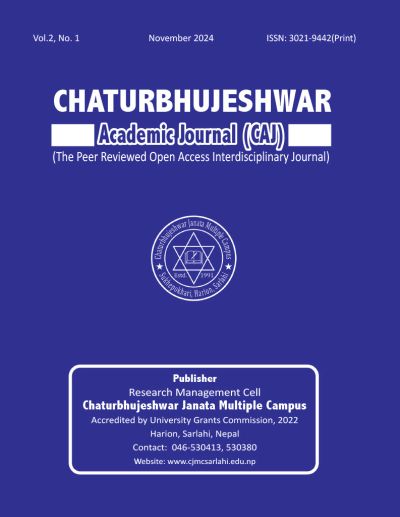Post-Positivism and Its Application in Health Research
DOI:
https://doi.org/10.3126/caj.v2i1.72223Keywords:
critical realism, health research, mixed methods, Post-positivism, reflexivityAbstract
Post-positivism marks a significant shift in health research by recognizing the limitations of positivist approaches and embracing a more flexible, reflective and context-sensitive methodology. This approach acknowledges the interconnectedness of human health, influenced by various biological, psychological, social and environmental variables, which are beyond the scope of quantitative approaches alone. Post-positivism combines qualitative and quantitative methods, allowing scholars to probe the effects of health interventions, their occurrences and social contexts. The objective of this research is to explore the philosophical foundations of Post-positivism and its paradigms within health education research. This research methodology involves an extensive literature review of peer-reviewed academic articles and books to analyze the post-positivism paradigm within health education research, exploring its principles, applications and implications. The shift to post-positivism in health research has allowed for a more accurate and nuanced understanding of health issues by incorporating critical realism and reflexivity, helping minimize researcher bias. The integration of mixed-methods research and triangulation have strengthened the validity of studies, especially when the researcher examine the people experiences and the influence of social factors. Post positivism has reshaped health research by blending qualitative and quantitative methods and promoting reflexivity and ethical practices. This approach provides richer insights and more comprehensive and effective solutions that cater to both individuals and broader community needs.




